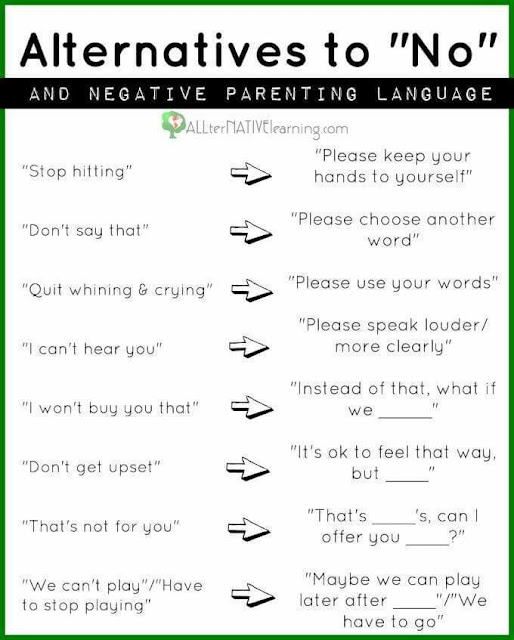The Use of Positive Language With Children
THE
USE OF POSITIVE LANGUAGE WITH YOUNG CHILDREN
For every one of us that has a child in our care
whether it is us teachers, parents, nannies or caregivers is important to use
positive language with each child rather than negative:
(e.g. “Don’t pick your
nose” use “Would you wipe your nose with this tissue”
“Stop running!” use “Can
we use our walking feet please”
“That is very bold/naughty” use “That’s not
very nice, is it?(explain why the behaviour is not nice)
The use of positive language:
Will give the
children a sense of achieving and doing right rather than feelings of guilt or
not being able to do something correctly.
Hence why I think it is important to
have a positive touch on everything even when we are speaking to and correcting
children.
We all know it can get a little frustrating at times but the
important thing to remember is to stay as calm and positive.
We are all
teachers anyone of us who is caring for a child. They learn from us adults and
they pick up everything they are like little sponges!
It is also important to explain to a child why their actions are either not nice, safe, appropriate etc.
That way they are actually learning a lesson. For me I think it is also important when speaking with a child you should always come to down to eye level.
An adult towering over a child can be very intimidating.
A child will respond much quicker when you are down on their eye level. It also makes you as a caregiver much more approachable in times of worry or need with the child.
Young children are amazing blank canvasses ready to be inspired, ready to learn, ready to listen. So make sure when you are saying something to a child that it leaves them with memories of positive effect not negative. Watch them flourish in front of you.
It is also important to explain to a child why their actions are either not nice, safe, appropriate etc.
That way they are actually learning a lesson. For me I think it is also important when speaking with a child you should always come to down to eye level.
An adult towering over a child can be very intimidating.
A child will respond much quicker when you are down on their eye level. It also makes you as a caregiver much more approachable in times of worry or need with the child.
Young children are amazing blank canvasses ready to be inspired, ready to learn, ready to listen. So make sure when you are saying something to a child that it leaves them with memories of positive effect not negative. Watch them flourish in front of you.





Comments
Post a Comment